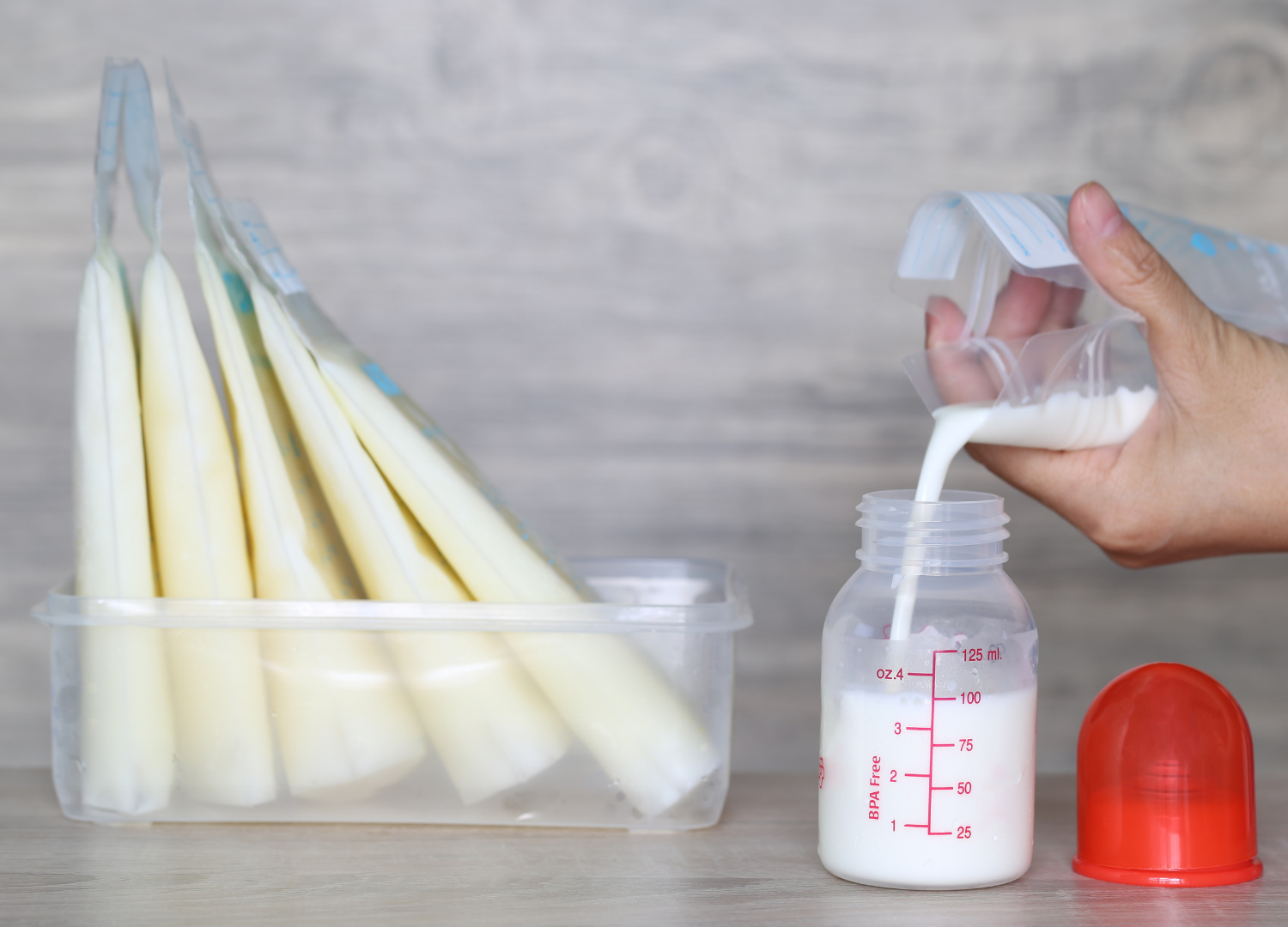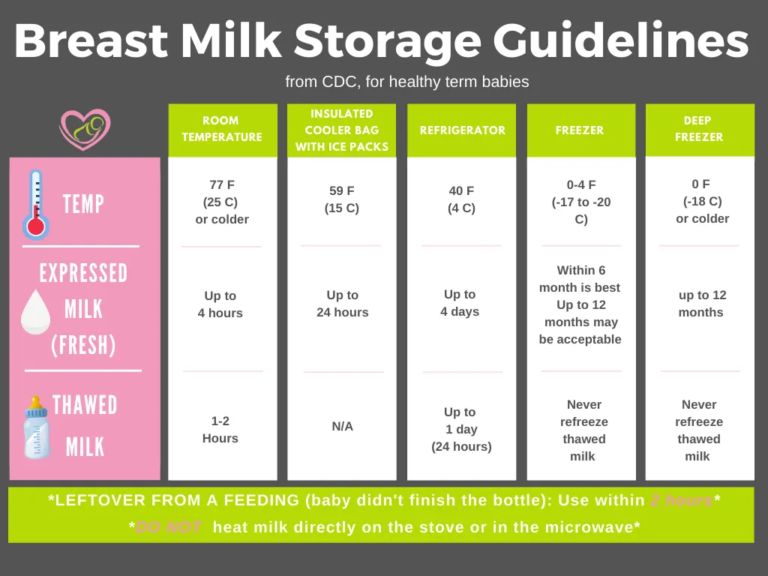How To Properly Store And Handle Breast Milk
December 18, 2021 2024-06-20 17:09How To Properly Store And Handle Breast Milk
Proper Breast Milk Storage and Handling

Breast milk is a living substance! It contains millions of live cells, including white blood cells (for immunity) and stem cells (for organ development and healing). It also contains over 1000 proteins, amino acids, prebiotics, enzymes, growth factors, hormones, antibodies, long-chain fatty acids, microRNAs...the list goes on, and scientists are discovering more every day!
Properly storing and handling breast milk can make a real difference in babies' health and nutrition, starting with the conditions under which it is pumped, the type of storage container, when and how it is stored, and when and how it is thawed/warmed.
How Pumping Conditions Affect Your Breast Milk
Do you wash your hands prior to pumping? Do you sanitize your pumping station and components prior to pumping? Are you pumping in a temperature controlled room or outdoors on a hot summer day? What is the temperature in your refrigerator or freezer? Varying factors can affect how long your milk can be stored safely, so please take the guidelines as a general and not a hard and fast rule. If you are pushing the limits of the storage guidelines, please take the above conditions into consideration, and remember it’s always a good idea to err on the conservative side if there’s any question.
Thawing Your Milk
Let’s talk about heat. Most of us know never to heat breast milk in the microwave, due to the possibility of creating “hot spots” that can burn your baby’s mouth, but many do not know that exposure to high temperatures also can induce fat profile variations and impact the nutritional and immunological properties of your milk. This includes hot water baths, and especially the use of electric bottle warmers! The ideal way to thaw breast milk is overnight in the refrigerator, then warmed gently until it’s room temperature. If thawing overnight in the refrigerator isn’t possible, the next best thing is to run the container under cool water, gradually adding warmer water until the milk is room temperature. Let’s face it…in real life, sometimes a hungry baby demands that milk is thawed quickly. Microwaving can be tempting in these situations, but please resist the urge! In a pinch, using hotter water to thaw the milk more quickly is still better and safer than microwaving.
Can You Combine Milk?
Breast milk is a dynamic fluid, so it’s nutrient components vary and are constantly changing. By mixing milk from different pumping sessions, you are balancing out the nutrients. The benefit of this is that your baby is receiving a more equalized amount of nutrients at each feeding, but a drawback is that there are certain times of day where having more of a component is beneficial. For example, at night, your milk will contain more melatonin than at other times of day, with the purpose of helping your little one sleep.
There are differing opinions regarding the safety of combining breast milk from separate pumping sessions. More studies need to be done to determine the outcome mixing milks of different temperatures, but as of now the general consensus is to avoid doing so. If you wish to combine milks, be sure they are the same temperature first!
Pro tip: Always make sure to gently stir or shake to equalize the temperature and mix in the fat particles that naturally separate when milk is frozen.

***The information provided on our website is intended solely for general educational and informational purposes only. It is neither intended nor implied to be a substitute for professional medical advice. Always seek the advice of your physician for any questions you may have regarding your or your child’s medical condition. Never disregard professional medical advice or delay in seeking it because of something you have received in this information.***
Search
You may also like
adoption baby baby care babyproofing bottle feeding breastfeeding breastfeeding pain breast milk storage breast refusal car seat cedar park regional clogged duct clogged ducts contraceptives discharge doula engorgement exercise foremilk hindmilk hospital how to give baby a bath IBCLC labor lactation consultant low supply massage mastitis menstruation newborn care nursing strike nutrition plugged duct plugged ducts postpartum prenatal pumping relactation safety siblings sleep suck training thrush video weaning
Search



